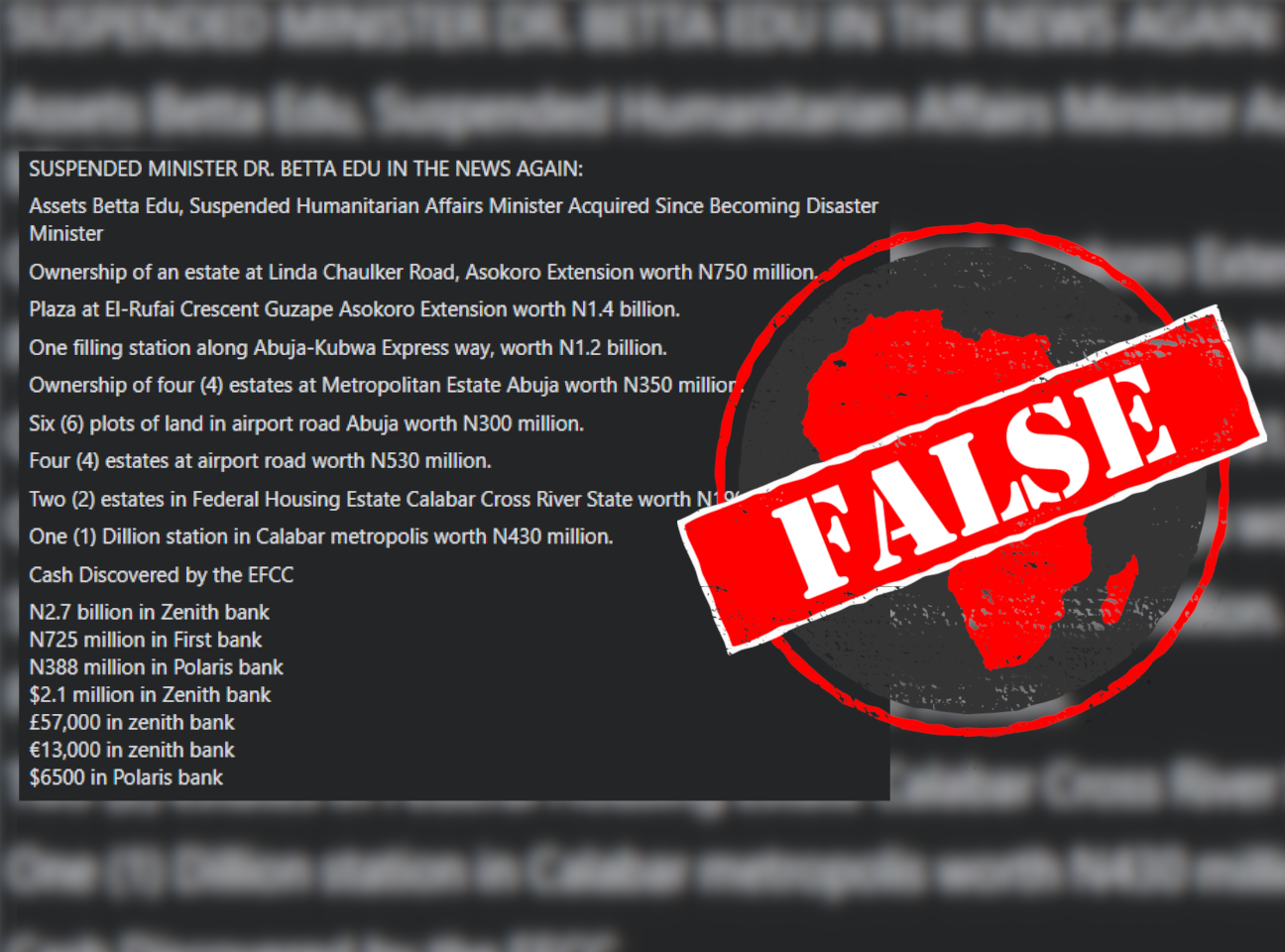IN SHORT: Nigeria’s Economic and Financial Crimes Commission is investigating Betta Edu for fraud, but there's no evidence that it has published a list of the assets she acquired as minister. Ignore the list making the rounds online.
In January 2024, Nigeria's anti-graft agency detained Betta Edu for questioning on the orders of president Bola Tinubu. Edu is the country's suspended minister of humanitarian affairs and poverty alleviation.
She was suspended for allegedly diverting more than N585 million (about US$640,000) of public funds into a personal bank account.
The Economic and Financial Crimes Commission (EFCC) is responsible for fighting economic and financial crimes in Nigeria.
However, EFCC spokesperson Dele Oyewale told the press that Edu was granted bail, but did not disclose the conditions of her release.
Following this, several posts on Facebook and Instagram, including here, here, here, here and here, claim that the EFCC has released a list of assets acquired by Edu since she assumed office in 2023.
One of the posts reads: “Assets Betta Edu, Suspended Humanitarian Affairs Minister Acquired Since Becoming Disaster Minister.” It goes on to list properties and cash that it claims belong to Edu.
But did the EFCC release such a list? We checked.

No such list from the EFCC
A search of the EFCC website and official X (formerly Twitter) handle returned no evidence of a list of assets acquired by Edu since her appointment.
The media have covered the case extensively and would most likely have reported the list circulating online if it had indeed been released by the EFCC.
Investigations are ongoing. At the time of publication, there was no news of such a list in relation to this case.
Republish our content for free
For publishers: what to do if your post is rated false
A fact-checker has rated your Facebook or Instagram post as “false”, “altered”, “partly false” or “missing context”. This could have serious consequences. What do you do?
Click on our guide for the steps you should follow.
Publishers guideAfrica Check teams up with Facebook
Africa Check is a partner in Meta's third-party fact-checking programme to help stop the spread of false information on social media.
The content we rate as “false” will be downgraded on Facebook and Instagram. This means fewer people will see it.
You can also help identify false information on Facebook. This guide explains how.


Add new comment